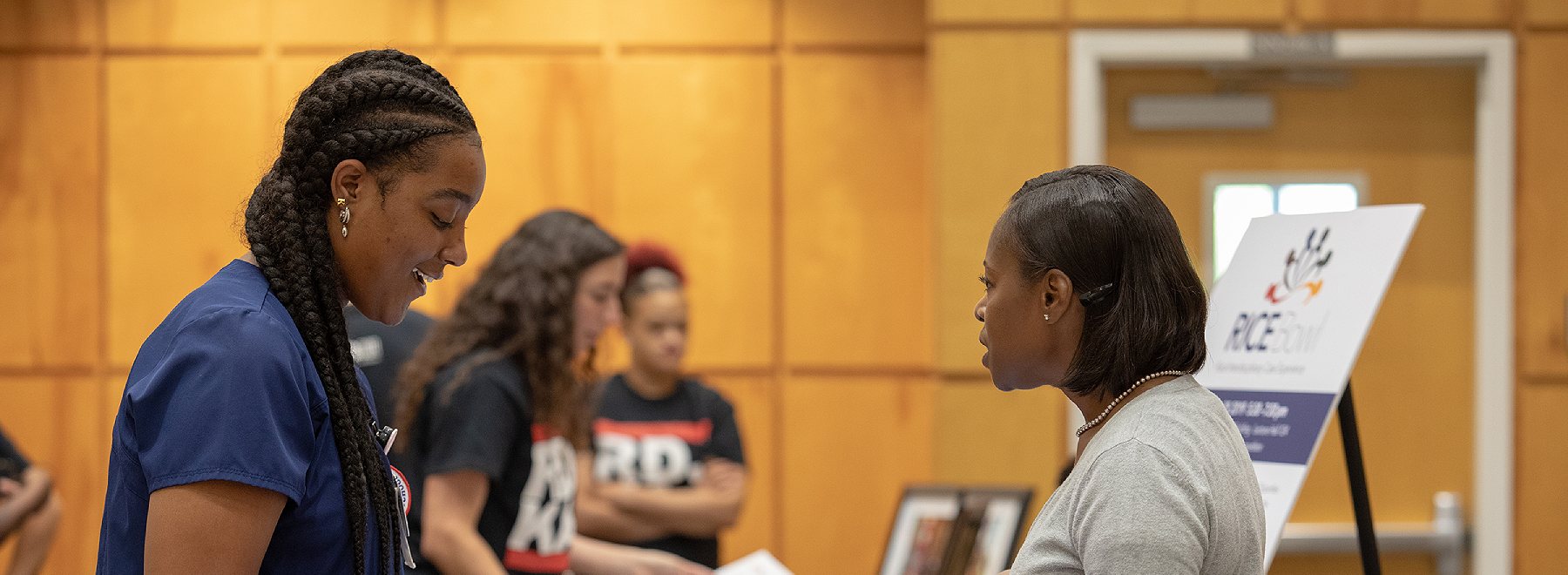
Interprofessional Education
- Office of Academic Affairs Home
-
About Academic Affairs
- About Academic Affairs
- Academic Affiliations
- Academic Effectiveness
- Academic Excellence
- Academic Engagement
- For Prospective Students
-
For Students
-
Student Affairs
- Office of Student Affairs
- Student Organizations
- Student Life Calendar
- Associated Student Body
-
Student Accounting
- Student Accounting Home
- Tuition Information
- UMMC Waivers
- Tax Information
- Student Insurance
- Contact Us
- Student Counseling Services
- TELUS Health Assistance Program
- Student Benevolence Fund
- Police and Security and Transportation
- Suggestions for the Student Union
- Student Complaints
- Title IX and Sexual Misconduct
- Student Information Systems
- Student Success
- Academic Outreach Programs
- Academic Engagement
- Interprofessional Education
- GivePulse and Service Learning
- eCampus
- Enrollment Management
- Off Campus Housing
- International Services
- Student Accounting and Insurance
- Student Financial Services
- Commencement
-
Student Affairs
- For Faculty
- Resources
- Museum of Medical History
IPE at UMMC
Education at the intersection of collaboration
At the University of Mississippi Medical Center, Interprofessional Education (IPE) is a core component of preparing students to deliver team-based, patient-centered care. Educational opportunities are thoughtfully woven into the curricula across our professional schools—introducing students to the competencies needed to communicate, collaborate, and lead within interdisciplinary health care teams. These required IPE events, embedded throughout degree programs, ensure that every student gains foundational experience in working with others across disciplines to solve complex health challenges.
In addition to these curricular experiences, UMMC proudly supports a wide range of co-curricular IPE events that extend learning beyond the classroom. These are often designed and led by the IPE Student Liaison Advisory Council (SLAC), a dynamic group of student leaders who foster engagement through simulations, discussion forums, and creative learning formats. These voluntary activities give students the opportunity to explore interprofessional collaboration in a more flexible, innovative, and often peer-driven environment.
Together, these two types of experiences—curricular and co-curricular—complement one another to create a holistic learning environment. Required IPE activities provide structure and consistency in competency development, while co-curricular events allow for creativity, leadership, and real-time application of skills in varied contexts. By offering both, UMMC ensures that students not only meet core educational objectives but also build the confidence, adaptability, and empathy essential to thriving in a collaborative health care setting.
Explore the examples below to learn more about the interprofessional learning opportunities available to students across campus.
Curricular IPE experiences: Building core competencies
Interprofessional education is intentionally embedded into the curricula of UMMC’s health professional programs to provide students with structured opportunities to learn and apply collaborative skills. These required IPE events are aligned with the IPEC Core Competencies—values and ethics, roles and responsibilities, communication, and teamwork—and are designed to help students understand how collaboration directly impacts patient care.
Examples of curricular events include:
- Escape Room: Roles and Responsibilities in Acute Pain Management - This fast-paced, game-style simulation challenges interprofessional teams to work together in a clinical “escape room” scenario involving a patient admitted for acute pain. Students must collaborate across disciplines to solve clinical puzzles, interpret clues, and determine the appropriate treatment plan. The activity emphasizes understanding each profession’s unique role in the health care team while building trust and communication in a fun, interactive format.
- Chronic Pain Simulation: A Journey Toward Dependence - In this multi-phase case-based simulation, students explore the trajectory of a patient with chronic back pain who progresses toward opioid dependence. The activity highlights team-based approaches to ethical prescribing, pain management, and long-term care, while fostering appreciation for how shared decision-making supports safer outcomes.
- Naloxone Training and Red Flag Identification - This experience engages students in identifying opioid-related risk factors and administering naloxone during overdose situations. By learning together, students develop confidence in communicating across disciplines and managing crisis situations with coordinated care.
- Medication Safety Simulation - Focused on preventing and managing medical errors, this simulation requires interprofessional teams to identify a medication error, discuss its root causes, and collaboratively communicate the mistake to a standardized patient. The event enhances teamwork, transparency, and error disclosure skills—core components of patient safety.
- Ethical Simulation: Caring for Vulnerable Populations - Using standardized patients portraying individuals experiencing homelessness, this event tasks teams with assessing medical needs while considering limited economic and social resources. Students must advocate for care plans that are both ethical and practical, learning how to balance clinical priorities with compassion, equity, and systemic awareness.
- Domestic Violence Simulation - This powerful simulation places students in the shoes of a patient experiencing intimate partner violence, challenging them to navigate the emotional, physical, and systemic barriers often faced by survivors. Through role-play and reflection, students gain a deeper sense of empathy and a clearer understanding of their professional responsibilities. The post-simulation debrief emphasizes the unique role each discipline plays in identifying signs of domestic violence and outlines appropriate steps to support and protect the patient.
These events serve as powerful, curriculum-integrated experiences that not only fulfill academic objectives but also help students internalize the professional behaviors and collaborative mindsets needed in real-world health care environments.


